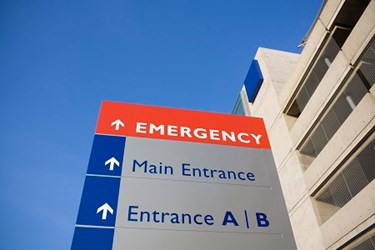Technology Helps ‘Most Wired' Improve Communication, Patient Safety

By Christine Kern, contributing writer

The twenty hospitals on Hospital and Health Networks’ ‘Most Wired’ list make tremendous gains by using IT.
Hospitals and Health Networks released its list of Most Wired hospitals as part of an effort to highlight which health systems and facilities are best connecting to patients.
"Our hospital administrative team reviews data weekly and monthly with the aim of reducing errors or increasing percentages," explains Jim Boyer, CIO of Rush Memorial Hospital. "Most of the data are delivered in the form of reports, clinical decision support or scorecards across the organization, thus impacting patient care."
The study was conducted with San Francisco-based McKesson Corp., AT&T, the College of Healthcare Information Management and the American Hospital Association. The hospitals that made the list “have made tremendous gains by using IT to reduce the likelihood of medical errors,” the survey explains.
The category of Most Wired indicates the health providers met a rigorous set of criteria across four operational categories. According to the survey, 67 percent share critical patient information electronically with specialists and other providers. Hundreds of hospitals made the list, ranging from the biggest system in the country to small, independent rural hospitals. The “most advanced” hospitals include:
- Altru Health System in Grand Forks, ND
- Central Maine Medical Center in Lewiston, ME
- Children’s Medical Center in Dallas
- Crozer-Keystone Health System in Springfield, PA
- Genesis Health System in Davenport, IA
- Inova Health System in Falls Church, VA
- Memorial Sloan Kettering Cancer Center in New York City
- Ochsner Health System in New Orleans
- Richard L. Roudebush VA Medical Center in Indianapolis
- Riverside Health System in Newport News, VA
- Rush University Medical Center in Chicago
- St. Joseph Mercy Oakland in Pontiac, MI
- Susquehanna Health in Williamsport, PA
- Tampa General Hospital in Tampa, FL
- Truman Medical Centers in Kansas City, MO
- University of California San Diego Health System
- University of Wisconsin Hospital and Clinics in Madison, WI
- Veterans Health Administration in Washington, D.C.
- West Virginia University Hospitals in Morgantown, WV
- Yale New Haven Health System in CT
According to the survey, these systems met all the qualifying criteria, including “stronger security systems and faster disaster recovery; electronic tools to improve business processes, quality and patient safety; use of evidenced-based electronic order sets; automated review of CMS key indicators with compliance alerts; chronic disease management services for patients at home.”
Most Wired hospitals also are accelerating development of activities around patient engagement, which is crucial in a value-driven health care economy. The focus isn't just on kiosks and electronic bill pay, but includes all aspects of patient engagement, including chronic disease monitoring and mobile health applications. For instance:
• 82 percent of Most Wired hospitals allow patients to check test results via a portal.
• 53 percent of Most Wired hospitals offer patients with chronic conditions self-management tools via a portal.
• 58 percent of Most Wired hospitals offer an mHealth app that provides access to the patient portal.
• 40 percent of Most Wired hospitals offer secure messaging.
Other key findings of the survey indicate that nurses and physicians at 90 percent Most Wired hospitals share best practices for patient safety and use checklists. Thirty-six percent of the hospitals aggregate data to create a community health record, while 71 percent Most Wired manage care transitions compared to 57 percent among all responding organizations. Another 43 percent integrate clinical and claims data and make it accessible and searchable across the providers. And 35 percent of the listed hospitals use social media to deliver care management messages and 40 percent provide mobile applications for secure messaging with patients.
More than 30 percent of all hospitals in the U.S., or 1,900 total, responded to the survey, conducted in January.
